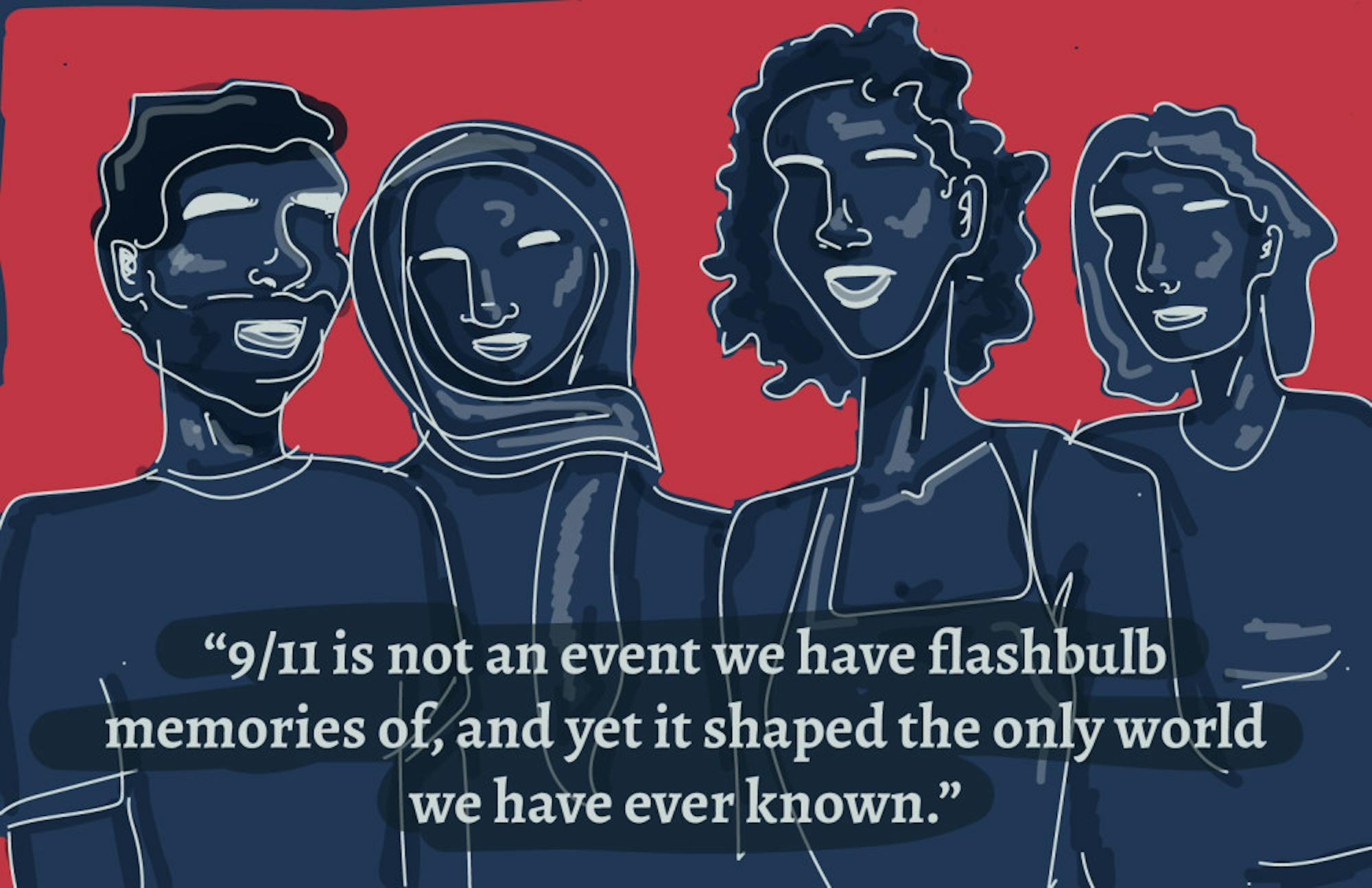Saturday, Sept. 11, 2021 was marked by remembrances of the horrific attack 20 years ago that transformed countless lives, our nation and the world at large. The remembrances focused largely on the 2,753 lives lost at Ground Zero — people who undoubtedly deserve to be remembered.
As we reflect, remembering those who lost their lives and lauding the heroic first responders and citizens who gave their lives to protect others, we must also confront the dark reality that is the American response to this tragedy.
The 20-year anniversary of the Sept. 11 attacks marks the coming of age of a new generation, one which does not remember the attacks but has grown up in its aftermath. The annual refrain of “Never Forget” means something different to many of us than to older Americans — 9/11 is not an event we have flashbulb memories of and yet it shaped the only world we have ever known.
Here in the United States, the intelligence and surveillance technology brought about by 9/11 have changed the way we treat our own citizens. For instance, in a recent New York Times article, Derrick Ingram describes being detained by dozens of armed New York City Police Department officers who used drones, facial recognition technology and intercepted his phone calls in order to identify him. He was an organizer and activist who had spoken through a bullhorn while standing too close to a police officer at a protest back in 2020. He was arrested, though the charges were later dropped.
The new intelligence tools that were created to aid the War on Terror are being used by police officers on American citizens. The Department of Homeland Security has provided police officers and U.S. Immigration and Customs Enforcement officials with weapons that should only be used in war, likely worsening the excessive use of force which organizations like Black Lives Matter and Abolish ICE have worked to combat.
One group that has been targeted, both by the U.S. government and by the American public, in the aftermath of 9/11 has been the Muslim community. Muslim people have been demonized and Islam has often been associated with terror in the United States, including in the FBI which was exposed in 2011 for running Islamophobic trainings. All the while, Americans have been killed in countless mass killings, none of which were perpetrated by Islamic extremists.
Muslim communities have instead been the victims of violence, as hate crimes committed against Muslims in the U.S. rose dramatically after 9/11 and still have not returned to pre-9/11 levels. Even those of other faiths and communities, including those of the Sikh faith, have experienced heightened violence as a result of racial profiling. Four days after 9/11, Balbir Singh Sodhi, a Sikh man, was shot and killed at a gas station by someone who incorrectly identified him as Muslim.
For millennial Muslims, 9/11 changed everything. Many were called “Osama” or other names and slurs by classmates, some felt self-conscious wearing their hijab and others were suddenly finding themselves stopped at every airport security check. My Indian family has often joked about being stopped at the airport for “being brown” — but the issue is truly a deep-seated and harmful mistrust born out of 9/11. And, of course, one of the darkest legacies of 9/11 is the War on Terror, specifically the wars in Iraq and Afghanistan.
We lost American lives, American dollars and, in many ways, the American moral high ground in these wars, not to mention the reprehensible impacts on the communities in which we fought. We entered the war in Iraq based on blatantly wrong intelligence, pulling resources away from the war in Afghanistan that would last 20 years and end painfully for both America and Afghanistan.
In these wars, we worked with countries such as Pakistan and Egypt whose corrupt and abusive governments had ties to the terrorists we were purportedly fighting. We have killed many innocent civilians, such as the 10 Afghanis, including seven children, killed in a U.S. drone strike days before the end of the war. The U.S. military supported Afghan commanders who blatantly committed acts of child sexual abuse, even relieving servicemembers who refused to turn a blind eye. And infamously, the United States used horrific torture methods on terrorism suspects at Guantanomo Bay and the Iraqi Abu Ghraib prison. In what way have we successfully ‘fought evil?’
As we move forward, we should mourn those lost too soon on Sept. 11, 2001. But we should also recognize the harm caused by the American response to the attacks and mourn those that the U.S. has hurt, abused and killed since, in the name of counterterrorism.






